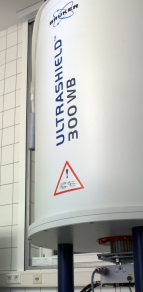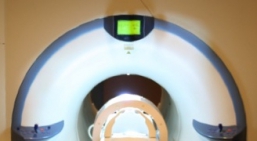Research
The Institute for Medical Data Science covers the spectrum of medical informatics, bioinformatics and biostatistics for medical research questions. We are happy to personally assist you with your exciting inquiries. Prof. Dr. med. Julian Varghese
Medical Informatics for Research Infrastructures
The field of Medical Informatics focuses on the planning and development of medical information systems and IT research infrastructures for research and teaching. As a central infrastructure, the Data Integration Center has been established to make data from primary IT systems available for research purposes..
- Data Integration Center
- Research Data Management
- Patientenapps and Smart Devices
- Clinical Data Management
- Trusted Third Party
Artificial Intelligence
We apply artificial intelligence methods across the entire spectrum of medical data – from medical free text using large language models to biosignal data and medical imaging.
- Predictions or classifications based on medical data (images, time series, tabular data, and free text)
- Medical image segmentation and annotation in both 2D and 3D modalities
- Clinical decision support systems and consulting on regulatory aspects such as the EU Medical Device Regulation (MDR), In Vitro Diagnostic Regulation (IVDR), and the EU Artificial Intelligence Act
Our publication highlights:
- Large Language Models in Nature Medicine
- Deep Learning analysis on ECGs in European Heart Journal
Medical Bioinformatics
Since July 2025, a new division for Medical Bioinformatics has been established at the IMDS. It focuses on the analysis of molecular data such as:
- DNA
- RNA
- scRNA, spatial Transcriptomics
- Multi-OMICS
to address fundamental scientific questions. In addition, we develop interactive dashboards for the visualization of molecular data alongside clinical data. Through close integration with methods from medical informatics, biostatistics, and artificial intelligence, we create innovative approaches for analyzing complex health data — resulting, among other things, in clinical dashboards that provide individualized analyses.
Our publication highlights:
- Spatial Transcriptomics in Nature Medicine
- Somatic mutations and DNA methylation patterns in HemaSphere
Biostatistics
Teaching and biostatistical consultingbiostatistical consulting are the Main Focus of the Biometry Working Group.
Biometric consulting for medical research projects is available to all members of University Medicine Magdeburg. The consulting may include study design, guidance on data collection, statistical analysis, and interpretation of results. It encompasses support for
-
academic theses (doctoral and postdoctoral dissertations),
-
medical publications,
-
animal study applications, and
-
clinical trials.
There are close, in some cases long-standing, collaborative relationships with numerous institutes and clinics of the Medical Faculty. These collaborations often arise from consultations with the working group, which may lead to more extensive projects undertaken by us — frequently involving the planning and analysis of clinical or experimental studies. The importance of this work within our group is also reflected in the institute's list of publications, which includes many works that have resulted from close collaboration with faculty partners.
There are also close cooperative relationships with the Clinical Trials Coordination Center(KKS) Magdeburg, which was established with the support of the Institute of Medical Data Science.
Ressources and Facilities
NMR-Spektrometer Bruker WB-300 Ultrashield |
Linux-Cluster |
||
|
|
Bruker 7T-NMR-Spektrometer mit 10-mm-Probenkopf Routinemessungen:
|
|
Hybride Serverfarm bestehend aus:
|
3D-Drucker |
|||
|
Fused Deposition Modeling 3D-Drucker:
|
|||
Das Institut kann auf folgenden Human-MRT-Systemen messen:
7-Tesla Ultrahochfeld Ganzkörper MRT-System |
3-Tesla Ultrahochfeld Ganzkörper MRT-System |
||
|
|
|
||
|
Siemens TIM Avanto (Betreiber: FNW) Ausstattung:
|
|||










